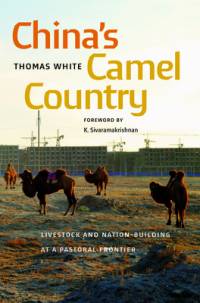Om China's Camel Country
In recent years China has positioned itself as a champion of state-led resource conservation and sustainable development as it seeks to combat negative ecological effects of rapid economic growth and to adapt to climate change. In the arid rangelands of Inner Mongolia, state environmentalism has involved grassland conservation policies that target pastoralists and their animals, blamed for causing desertification. Drawing on ethnographic fieldwork in Alasha, an arid region in the far west of ChinaâEUR(TM)s Inner Mongolia Autonomous Region, Thomas White illustrates how state environmentalism hasâEUR"through grazing bans, enclosure, and resettlementâEUR"transformed the lives of ethnic Mongol pastoralists and their animals. However, while surveillance and securitization in ChinaâEUR(TM)s ethnic-minority regions have deepened in recent years, this book examines a form of counterpolitics in the midst of the stateâEUR(TM)s intensifying nation-building project. Alasha now styles itself as "ChinaâEUR(TM)s Camel Country," where the domestic camel has special status, exempted from many grassland conservation policies that apply to other types of livestock. This study is both a political biography of the Bactrian camel and a work of political ecology addressing critical questions of conservation, state power, and rural livelihoods. In exploring how the greening of the Chinese state affects the entangled lives of humans and animals at the margins of the nation-state, it contributes to debates in political anthropology, animal studies, political ecology, and more-than-human geography.
Visa mer

